Advocacy Update, April 2024
by Elizabeth ‘Issie’ Karan, Legal Counsel
- OPA Releases Much Anticipated Alternative Dispute Resolution Rule for the 340B Program
-
- Establishes a less trial-like process in order to make ADR more accessible to smaller covered entities with fewer resources;
- Revises the structure of the 340B ADR panel so that it is comprised of 340B program subject-matter experts—only from the Office of Pharmacy Affairs, rather than also including representatives from other offices, like the Centers for Medicare & Medicaid Services and the Office of the HHS Secretary;
- Includes additional screening for ADR panel members;
- Requires the establishment of deadlines and procedures that ensure that claims are resolved fairly, efficiently, and expeditiously;
- Requires the parties to have worked in good faith before proceeding through the ADR process;
- Aligns the ADR process more closely with the provisions of the 340B statute on diversion, duplicate discounts, and overcharges; and
- Creates a reconsideration process for parties dissatisfied with the ADR panel’s decision.
- New Leadership at the Office of Pharmacy Affairs
- Matsui Introduces Legislation to Codify the Use of Contract Pharmacies in the 340B Program
On April 18, 2024, the Health Resources and Services Administration (HRSA) and the Department of Health and Human Services (HHS) released a final rule on the Alternative Dispute Resolution (ADR) process in 340B. This version of the rule makes significant changes to the process first established in the last days of the Trump administration. More specifically, the final rule:
The final rule includes Medicaid managed care claims in the ADR process which covered entities had advocated for being excluded. It also indicates that the government will release only limited, very brief summaries of ADR case results, which is similar to how HRSA posts audits of covered entities and manufacturers. As such, covered entities face uncertainty on the standards being used for Medicaid managed care claims by the ADR Panel and insight into how the ADR process truly works.
In the rule, HHS commits to publishing policies and procedures for screening panel members on a HRSA public-facing website within 120 calendar days of the publication of the final rule. The rule will go into effect 60 days after it is published in the print version of the Federal Register. The Hemophilia Alliance will continue to analyze the final rule and provide updates to HTCs as needed.
Earlier this month, the Health Resources and Services Administration (HRSA) announced Chantelle Britton as its next Office of Pharmacy Affairs (OPA) director. Britton has been serving as acting director since the departure of U.S. Public Health Service Lt. Cmdr. Emeka Egwim in December.
According to HRSA officials, Britton previously served as senior advisor in the Office of the Director of OPA for eight years, under Rear Adm. Krista Pedley, who now heads HRSA’s Office of Special Health Initiatives (OSHI) which oversees OPA and a number of other offices within HRSA. Britton joined HHS in 2006 and has held positions at the Centers for Medicare & Medicaid Services, HRSA’s Office of Legislation and the White House Office of National AIDS Policy/Domestic Policy Council. She received her bachelor’s degree in political science and political communications in 2004 from James Madison University and has two master’s degrees: one from Howard University and one from Maryland University of Integrative Health. The Hemophilia Alliance looks forward to working with Director Britton in her new role.
On March 12, 2024, Representative Doris Matsui (D-CA) introduced the 340B PATIENTS Act (HR 7635), legislation that would protect and strengthen the 340B program by codifying 340B providers’ ability to use contract pharmacies to dispense 340B discounted drugs. More specifically, the legislation requires manufacturers to offer 340B discount prices to covered entities regardless of the manner or location in which a drug is dispensed, including if a covered entity uses a contract pharmacy to dispense 340B drugs to the entity’s patients. IT also prohibits manufacturers from placing conditions on a covered entity’s purchase and use of 340B drugs, including through contract pharmacies. To enforce these requirements, the legislation imposes civil monetary penalties on manufacturers that violate the bill’s statutory requirements and prohibitions.
The press release of the legislation includes endorsements from 340B Health, the American Hospital Association, and the American Society of Health-System Pharmacists. News outlets indicate additional support from the covered entity community in the AIDS Healthcare Foundation and the Advocates for Community Health (which represents FQHCs). By contrast, ASAP 340B, the nonprofit group that was formed by PhRMA and the National Association of Community Health Centers said broader legislation is needed.
HTCs largely remain unimpacted by contract pharmacy restrictions from manufacturers. However, the Hemophilia Alliance will evaluate this legislation and keep the community apprised of any developments.
Also in this Issue…
Washington Update
· Hemophilia Alliance Hill Day Focuses on 340B and Alternative Funding Programs
Member and Community Relations Update
· Linda Gammage Social Work Conference Great Success
Marketing and Operations Team Update
· Post-New HTC Staff Orientation Update
· Upcoming Meeting Schedules
Notes from the Community
· 4th National HTC Patient Satisfaction Survey Underway

Comments are closed.